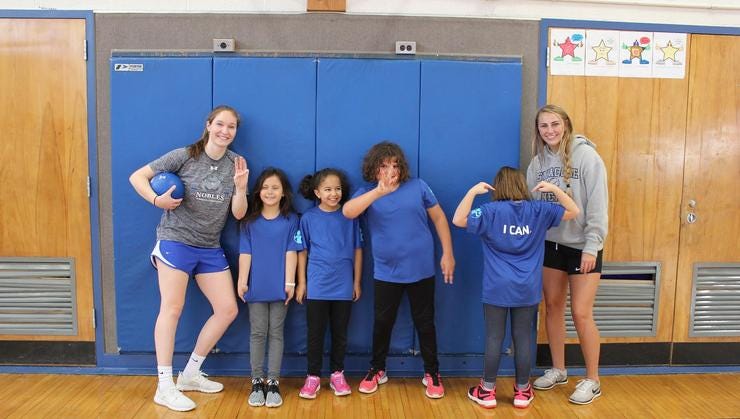
A 2016
TIME
magazine article, citing a 2013 study conducted by psychologists at Grand Valley State University in Michigan, explained that women are half as likely as men to engage or express interest in sports in fifty different countries. Another Grand Valley State survey, from 2014, had more inconclusive results; this time sampling 37 countries, the survey found that differences in interest and engagement between men and women were not statistically significant in some of the countries where they had previously been. In more competitive sports, however, such as basketball, the difference between men and women was astounding, with men participating at rates four times as high as women.
While evidence of gender-imbalances in sports participation is by no means conclusive, the research affirming this imbalance points to middle school as a turning point in male and female athletic involvement. Statistics show that girls and boys in fourth grade demonstrate equal interest in sports. However, some time between fourth grade and entry into middle school, girls begin to drop out of sports at a rate six-times higher than boys.
That’s where Strong Girls comes in. Launched at Hamilton by Katherine Kreider ’18 and Eleni Neyland ’18, Strong Girls aims to combat gender stereotypes in athletics. At a college where there are many excellent female student-athletes, this program looks to connect with a variety of women and sports, bringing in college students of all years to local elementary schools and middle schools. The mentors are all female-identifying, although they are by no means all varsity athletes. Working with children between second and fifth grade, the mentors teach girls sports-related skills and activities. The goal is not necessarily to make them better at sports, but to encourage them to challenge gender stereotypes and expectations before they enter middle school.
“It’s not a coincidence that beauty standards and gendered expectations start to really kick in at the same time that women start to drop out of sports,” explains Neyland, co-founder and co-director of the group. “We want to fight that.”
The idea for Strong Girls came from Kreider’s high school basketball coach, Lani Silversides, who founded the organization My Strong is Beautiful, which also focuses on female empowerment through sports. Silversides wrote a curriculum that Strong Girls later adopted, giving mentors an exact idea of what sports to focus on each week, such as dribbling during soccer week. Strong Girls was the first of two pilot programs at colleges that sought to engage older women with girls in local communities. The Hamilton chapter is currently on its fifth semester, having started in January 2016.
Each semester, Strong Girls operates at three schools. This semester, it is running at Hart’s Hill in Whitesboro, Andrew Edwards in Morrisville and Saqouoit Middle School in Saqouoit. The program costs forty dollars per person, but offers full financial aid scholarships to families in need. In high-need districts, the program is free, with the Community Outreach and Opportunity Project (COOP) covering the rest of the costs. The program typically runs for six weeks and Hamilton mentors visit the schools once every week. Neyland says the best measure of success is the enthusiasm that the girls and their schools have for the program. “The same schools always ask us to bring the program back, and we do. And, the girls who signed up for it the first time always come back,” she says.
For Neyland, the most rewarding part of the experience is witnessing the change in these young women first hand. She says: “There’s always that one girl who is really shy and then comes into her own, or that girl whose parents made her sign up, but even they get really into it. That’s the best part.”
Teaching girls to love sports is about more than technical skill. According to Neyland, “Learning how to deal with a win respectfully, how to take a loss in your stride, to deal with refs, how to work on a team, these are all things that make women more confident and more empowered citizens.”
Neyland also speaks of her own experience with lacrosse and field hockey and how it has made her more confident. “It’s proven that women who engage in sports when they’re younger are more likely than other women to run for office,” she says. “That’s not surprising. Sports isn’t the only way to empower women; art is good and music is good, and so are a lot of other things, but there is tremendous value here and we need to make sure as a society that we invest in and validate the power of female athleticism.”

















